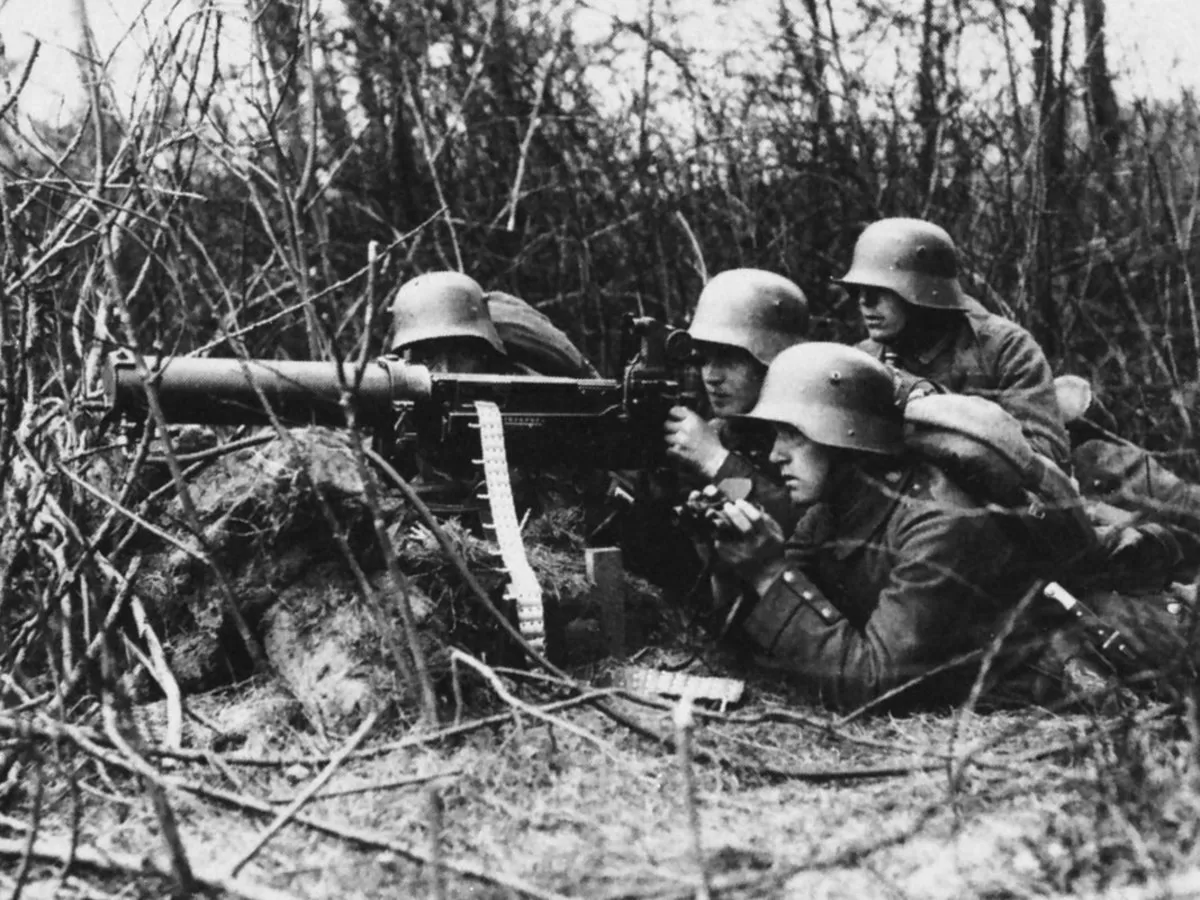The present European war, occuring as it does in an age of hysterical sentimentality and unsound political doctrines, has called forth from the sympathizers of each set of belligerents an unexampled torrent of indiscriminate denunciation.
The effeminate idealist, half awaked from his roseate vision of universal brotherhood, shrieks at the mutual slaughter of his fellow-men, or singles out individual acts of cruelty or treachery as the objects of his well-meaning rage; while the erratic socialist, saturated with false notions of equality and democracy, raves unendingly against cruel systems of government which sacrifice a peaceful peasantry to the greed and ambition of their warlike masters.
But though the sober philosopher perceives in war a phenomenon eminently natural and absolutely inevitable; though he realizes that the masses of mankind must remain subject to the will of a dominant aristocracy so long as the present structure of the human brain endures; he can none the less find in the colossal conflict an ample cause for the deepest regret and the gravest apprehension. High above such national crimes as the Serbian plots against Austria or the German disregard of Belgian neutrality, high above such sad matters as the destruction of innocent lives and property, looms the supremest of all crimes, an offense not only against conventional morality but against Nature itself; the violation of race.
In the unnatural racial alignment of the various warring powers we behold a defiance of anthropological principles that cannot but bode ill for the future of the world.
That the maintenance of civilization rests today with that magnificent Teutonic stock which is represented alike by the two hotly contending rivals, England and Germany, as well as by Austria, Scandinavia, Switzerland, Holland and Belgium, is as undeniably true as it is vigorously disputed. The Teuton is the summit of evolution. That we may consider intelligently his place in history we must cast aside the popular nomenclature which would confuse the names “Teuton” and “German,” and view him not nationally but racially, identifying his fundamental stock with the tall, pale, blue-eyed, yellow-haired, long-headed “Xanthochroi” as described by Huxley, amongst whom the class of languages we call “Teutonic” arose, and who today constitute the majority of the Teutonic-speaking population of our globe.
Though some ethnologists have declared that the Teuton is the only true Aryan, and that the languages and institutions of the other nominally Aryan races were derived alone from his superior speech and customs; it is nevertheless not necessary for us to accept this daring theory in order to appreciate his vast superiority to the rest of mankind.
Tracing the career of the Teuton through mediaeval and modern history, we can find no possible excuse for denying his actual biological supremacy. In widely separated localities and under widely diverse conditions, his innate racial qualities have raised him to preeminence. There is no branch of modern civilization that is not of his making. As the power of the Roman Empire declined, the Teuton sent down into Italy, Gaul, and Spain the re-vivifying elements which saved those countries from complete destruction. Though now largely lost in the mixed population, the Teutons are the true founders of all the so-called Latin states.
Political and social vitality had fled from the old inhabitants; the Teuton only was creative and constructive. After the native elements absorbed the Teutonic invaders, the Latin civilizations declined tremendously, so that the France, Italy, and Spain of today bear every mark of national degeneracy.
In the lands whose population is mainly Teutonic, we behold a striking proof of the qualities of the race. England and Germany are the supreme empires of the world, whilst the virile virtues of the Belgians have lately been demonstrated in a manner which will live forever in song and story. Switzerland and Holland are veritable synonyms for Liberty. The Scandinavians are immortalized by the exploits of the Vikings and Normans, whose conquests over man and Nature extended from the sun-baked shores of Sicily to the glacial wastes of Greenland, even attaining our own distant Vinland across the sea. United States history is one long panegyric of the Teuton, and will continue to be such if degenerate immigration can be checked in time to preserve the primitive character of the population.
The Teutonic mind is masterful, temperate, and just. No other race has shown an equal capability for self-government. It is a significant fact that not one square inch of Teutonic territory is governed save by its own inhabitants.
The division of such a splendid stock against itself, each representative faction allying itself with alien inferiors, is a crime so monstrous that the world may well stand aghast. Germany, it is true, has some appreciation of the civilizing mission of the Teuton, but has allowed her jealousy of England to conquer her intellectual zeal, and to disrupt the race in an infamous and unnecessary war.
Englishmen and Germans are blood brothers, descended from the same stern Woden-worshipping ancestors, blessed with the same rugged virtues, and fired with the same noble ambitions. In a world of diverse and hostile races the joint mission of these virile men is one of union and co-operation with their fellow Teutons in defense of civilization against the onslaughts of all others. There is work to be done by the Teuton. As a unit he must in times to come crush successively the rising power of Slav and Mongolian, preserving for Europe and America the glorious culture that he has evolved.
Wherefore we have reason to weep less at the existence or causes of this stupendous fray, than at its unnatural and fratricidal character; at the self-decimation of the one mighty branch of humanity on which the future welfare of the world depends.




